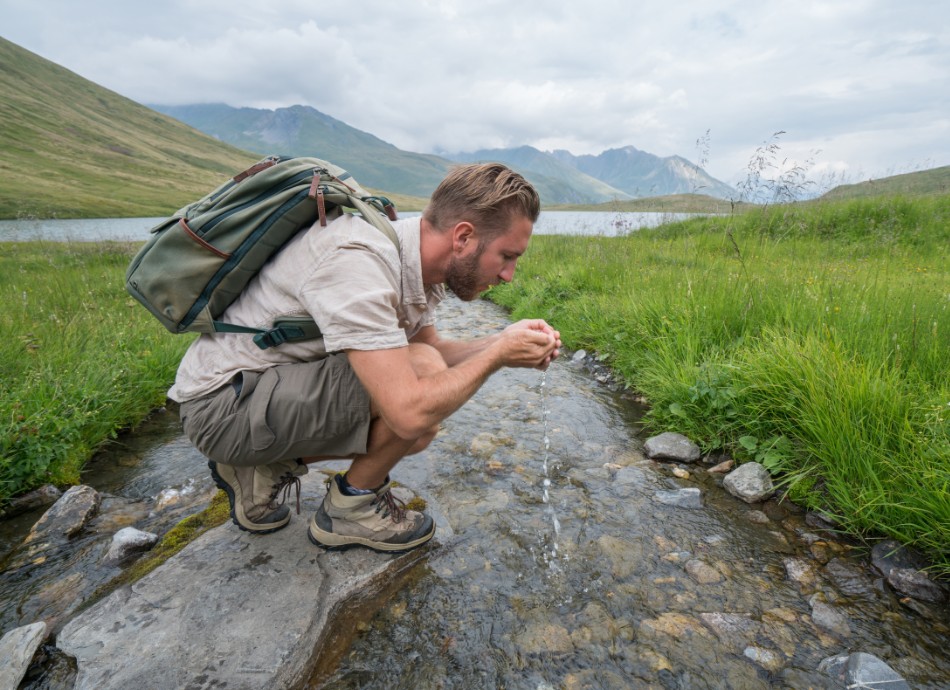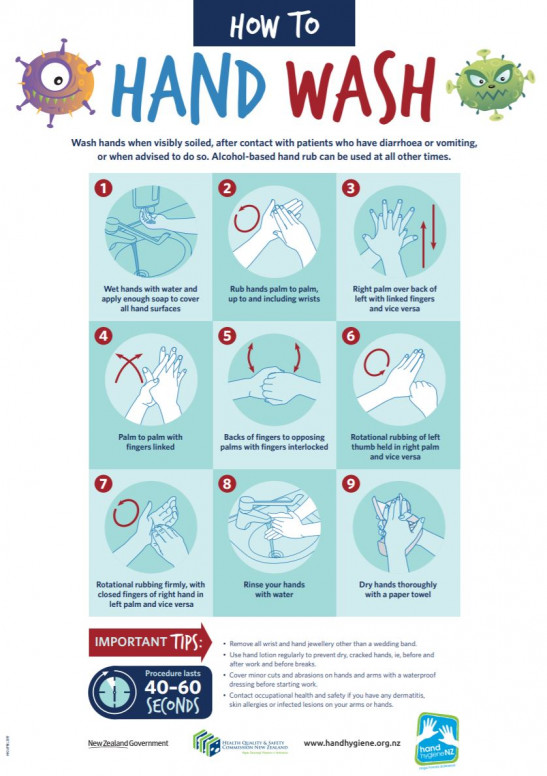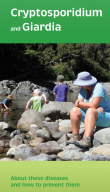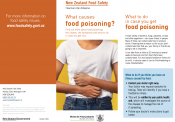Cryptosporidium
Also called crypto
Key points about cryptosporidium
- Cryptosporidium (commonly called crypto) is a parasite found in the gut of infected people and animals.
- It's widespread in Aotearoa New Zealand. The parasites can live in the environment for long periods, especially in water in lakes, rivers, streams and roof water.
- People infected with crypto usually get symptoms of gastroenteritis, eg, smelly, watery or runny poo.
- Young children, pregnant people and people with weakened immune systems are at risk of more serious disease.
- People and animals can carry and spread the infection even if they don’t have symptoms.

Cryptosporidium (crypto) is a parasite that lives in the gut of infected people and animals. The symptoms are unpleasant but they're not usually severe or long lasting – most people will get better within a month.
The most common symptom of crypto infection is smelly, watery diarrhoea and stomach cramps. Other symptoms may include nausea (feeling sick), vomiting (being sick) or fever.
Symptoms usually appear about a week after you've been infected.
- You may be ill for 2 weeks or more.
- The symptoms are generally mild but young children and pregnant people may be more likely to get dehydrated, and people with severely weakened immune systems are at risk of more severe symptoms that could lead to serious or life-threatening illness.
It's possible to get crypto more than once.
Crypto lives in the gut of infected humans or animals. It's passed on in the poo of infected humans and animals, usually via water, food, soil or surfaces/hands that have been contaminated with infected poo. It can survive in the environment for a long time.
Crypto is often spread to humans in the following ways:
- Swallowing contaminated water: The parasites can live for long periods, especially in lakes, rivers, streams and roof water. People become infected when they swallow the parasites, usually in contaminated water.
- Touching your mouth with contaminated hands: Hands can become contaminated through a variety of activities, including touching surfaces or objects such as toys, bathroom taps, nappy change tables that have been contaminated by poo from an infected person.
- Direct handling of animals: As crypto is found in animal poo, it can be spread by handling infected animals and not washing your hands afterwards.
- Contaminated swimming pools or water parks

Image credit: Canva
There's no way of telling by taste, sight or smell if soil, food, water or a surface has crypto. Crypto isn't spread through contact with blood. People who have crypto can have it in their poo, even when they feel well and usually for several weeks after they get better.
Crypto is diagnosed from a poo sample.
Cryptosporidium is a notifiable disease. This means that if you are found to have crypto, your healthcare provider will notify the Public Health Service. Someone from your local public health team may contact you to find out how you picked up the parasite. This helps them trace the source of infection to reduce the risk of a large outbreak.
Most people will recover without the need for any special medicines.
- You can help your recovery by drinking plenty of fluids to avoid getting dehydrated. Take extra care with young children and older adults who can become dehydrated very quickly.
- Also, eat as you feel able – be guided by your appetite. Start with bland foods (eg, toast or rice) and small, light meals.
When to get help
See your healthcare provider or call Healthline (0800 611 116) if you have concerns. Especially if your child:
- is drowsy or confused
- isn't drinking or can't keep fluids down
- has blood in their poo or vomit
- has bad tummy pain
- is getting worse or not getting better.
Hand washing is the best way you can help stop the spread of crypto
The best thing you and your whānau can do to stop the spread of infection is to practise good hand hygiene. This means scrubbing your hands with soap and water for at least 20 seconds and drying them thoroughly with a clean towel. It's important to wash your hands thoroughly:
- when caring for someone with diarrhoea
- after using the bathroom, changing a nappies, or helping others use the bathroom
- before eating or cooking
- after handling an animal
- after gardening, even if you used gloves.
Alcohol based hand sanitizer doesn't kill the cryptosporidium bug or stop the spread of the microscopic crypto cysts. Hand washing is the best way you can help stop the spread of crypto.

Other ways to stop the spread of crypto
- Don't return to work, school or preschool until free of symptoms for 48 hours.
- Don't use swimming pools, spa pools, or splash pads until at least 2 weeks after your symptoms stop.
- Avoid community gatherings and visiting people in hospital or long-term care facilities until at least 48 hours after your symptoms stop.
- If possible, don't prepare food for anyone else until 48 hours after your symptoms stop.
- Clean all surfaces and toys with hot soapy water. Crypto is hard to kill with disinfectant, but the best products to use are those containing hydrogen peroxide. Chlorine and bleach based products won't kill the crypto cysts.
- Wash contaminated linen (bedsheets, towels etc) and washable soft toys in hot water with detergent. Machine dry on a hot setting.
- Disinfect toilets regularly.
- Use your own towel, don't share with anyone else.
- Bathe separately or bathe sick children after others.
Notice about the need to boil water
If there's a community outbreak of crypto, some areas may be on a boil water notice. If you are on a boil water notice, plan ahead and boil water in advance if you're able to. Boil water for 1 minute and store in a clean container with a lid.
Cryptosporidium(external link) Health New Zealand | Te Whatu Ora
Cryptosporidium and Giardia(external link) HealthEd, NZ
What causes food poisoning?(external link) New Zealand Food Safety
Brochures
Cryptosporidiosis disease fact sheet(external link) Health New Zealand | Te Whatu Ora, NZ, 2025
References
- Cryptosporidium(external link) Health New Zealand | Te Whatu Ora
- Cryptosporidium(external link) Health Info, NZ
- Parasites – Cryptosporidium(external link) CDC, US
- Cryptosporidiosis(external link) Health New Zealand | Te Whatu Ora, NZ, 2023
Cryptosporidiosis(external link) Te Whatu Ora, Health New Zealand
Brochures

Cryptosporidium and Giardia
Te Whatu Ora, NZ, 2023

Cryptosporidium factsheet
Te Whatu Ora, NZ

What causes food poisoning?
New Zealand Food Safety, 2020
Credits: Healthify editorial team. Healthify is brought to you by Health Navigator Charitable Trust.
Reviewed by: Dr Veronica Playle, Clinical Microbiologist and Infectious Diseases SMO, Counties Manukau/Northern District
Last reviewed:





